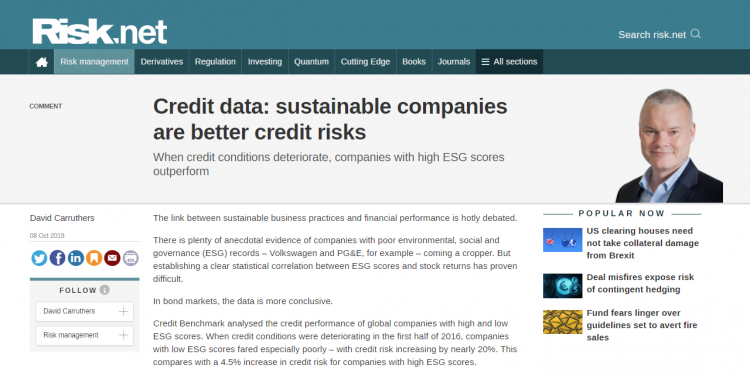
The link between sustainable business practices and financial performance is hotly debated.
There is plenty of anecdotal evidence of companies with poor environmental, social and governance (ESG) records – Volkswagen and PG&E, for example – coming a cropper. But establishing a clear statistical correlation between ESG scores and stock returns has proven difficult.
In bond markets, the data is more conclusive.
Credit Benchmark analysed the credit performance of global companies with high and low ESG scores. When credit conditions were deteriorating in the first half of 2016, companies with low ESG scores fared especially poorly – with credit risk increasing by nearly 20%. This compares with a 4.5% increase in credit risk for companies with high ESG scores.
In this series of monthly articles from Risk.net, David Carruthers, head of research at Credit Benchmark, compares the credit trends for companies scoring high and low on the ESG scale. Also this month, a look at risk premium cycles for government bond markets, and tracking the credit transition rates for US and UK large corporates. Finally, diverging credit trends seen in small cap v large cap companies as a comparison to the Russell 2000 and S&P 500 indexes.
Read the full article using the below link:
View original article (external link)